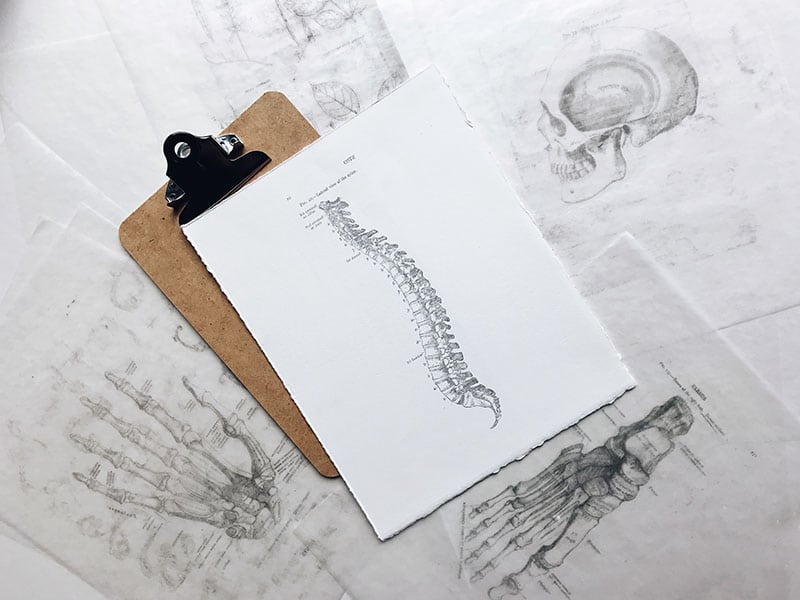Hand Hygiene: Shocking Statistics & How To Take Care of Your Hands
We’ve done the math on how many times nurses perform hand hygiene, plus some shocking facts and a few tips on how to take care of your hands as a nurse.
Our relentless research goes beyond shoes. Capsol allows us to talk all things nursing, from career advice and current news to self-care and mental health. These conversations with you, the community, and the world at large help us put our best foot forward when creating the best nursing shoes on the planet.
Working as a nurse is not for the faint of heart. Whether you are are a seasoned pro or fresh out of nursing school, taking care of your physical health should be a top priority in order to enjoy a fulfilling career.
Low back pain is one of the most common ailments among nurses and health care professionals. Unfortunately, nurses face more risk factors for developing low back pain compared to other professions.

In most hospitals, 12-hour shifts for nurses are the norm. Overtime and call shifts are also not uncommon. Long hours of standing and walking can place excessive postural stress on the lower spine; often resulting in muscle tightness, spasms, and pain.
Nurses frequently have to deal with heavy workloads caused by inadequate staffing and hospital policy. Being tasked with caring for a large number of patients generally results in fewer breaks (or possibly no breaks!) and longer amounts of time standing and walking.
In general, hospitals are not safe places to work. OSHA’s data shows that hospitals reported almost double the number of work injuries in 2011 as private industry work environments, surpassing even construction and manufacturing! OSHA also reports that the top causes of injuries in hospitals are overexertion, slips and falls, contact with objects, and violence. All of these put nurses at risk for low back pain and injury.
When moving or lifting patients, it is crucial to use proper mechanics to get the job done. Many hospitals have adopted lift systems and air mattresses to prevent nurses from being injured while transferring patients. Always use the tools available to you, even if you think they aren’t needed.
Always keep your lower back straight and knees bent while reaching or lifting. Rounding the low back places needless force on the muscles and spine, risking injury.
Avoid twisting when exerting any type of force, and always keep your shoulders and hips square.
While this tip may definitely seem “easier said than done,” it is crucial to give your body even just a few moments of rest during the workday. When possible, sit rather than stand to chart on your patients. Pull up a stool and adjust the height of the bed when placing an IV rather than standing and bending. Offer to trade with coworkers so you can relieve each other when a break is needed.
Though more research is needed, several studies show promising results from regular exercise training and stretching routines on low back pain reduction. Strengthening and stretching muscles that undergo a lot of stress during your shifts can help build endurance and reduce pain.
When it comes to your work shoes, do you choose based on price? Style? Recommendations from co-workers? You may want to re-think how you select shoes.
Not all feet and bodies respond the same to a specific brand or type of shoe. While your co-worker may be able to get away with wearing the same pair of cheap cross-trainers for two years straight, that doesn’t mean you should!
If you’ve been suffering from low back pain and it’s affecting your work and quality of life, don’t fret.
First and foremost, get evaluated by your primary care doctor or specialist. You may need more tests to rule out problems like herniated discs or stenosis. Once you are able to eliminate more serious issues, your doctor can refer you to a physical therapist to help get things back on track.

You know as a nurse how important it is to listen to your body. Follow that advice! In some cases, you may benefit from a less physically strenuous area of nursing. For example, if you’ve spent many years as a telemetry nurse and are having a hard time keeping your low back pain under control, you could look into a job in case management or nursing education.
What has worked for you to reduce and prevent low back pain as a nurse? We would love to know!
Author
most recent
We’ve done the math on how many times nurses perform hand hygiene, plus some shocking facts and a few tips on how to take care of your hands as a nurse.
Celebrate Pediatric Nurses Week as we talk about what pediatric nurses do, ideas for showing appreciation, and a breakdown of how to become one. Don’t miss this!
Ever wonder, what is with nurses and coffee? I mean, why do nurses love coffee? So many of us depend on that rich, hot java to jumpstart a shift.
0 Comments